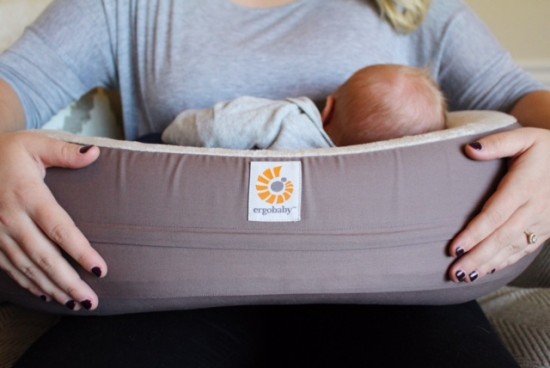
Below are some questions one of our lactation consultants Jennifer Lezak answered over on BabyCenter. We thought we would share them here too! Enjoy!
Question 1:
As a FTM, I’m nervous about breastfeeding! Right now i’m producing colostrum and by the time I wake up in the morning there is residue and I think they stink. While breastfeeding, do you need to wash your nipples in between feedings or before a feeding? Is the milk or colostrum the gets dried up in the nipples bad for the baby? Is all the colostrum i’m producing now going to negatively affect colostrum and milk production once baby is born? Love, MissCorene
MissCorene – First of all – congratulations on your baby’s impending arrival! Pregnancy is a very exciting time. Don’t be nervous about breastfeeding. I would suggest taking a prenatal breastfeeding class and perhaps line up some support once the baby arrives.
It’s perfectly normal for women to leak colostrum while they are pregnant. It usually starts sometime around the 3rd trimester but also can happen earlier. Some women find a few drops crusted on their nipples in the morning and other find their sheets are wet. Of course some women never leak at all, and this too is also perfectly normal. The amount of milk you leak or don’t leak now doesn’t have any affect on your future milk production once the baby is born.
You mentioned the smell and the need to wash. The smell of women’s milk has a broad range from fruity to sour, and your breast milk smell is unique to you. You’re usually more aware of it than anyone else. If you’re concerned about an unusual rancid smell, I would suggest contacting your doctor for further evaluation.
To continue with your questions, you do not need to wash your breasts before or after breastfeeding – just normal bathing will do. In fact your breastmilk contains natural antibodies that help to inhibit the growth of bacterias and yeast, plus it is very healing to your nipples. I would actually suggest hand expressing some drops of milk out after breastfeeding and rubbing the milk into your nipples to help keep them healthy. Colostrum, also known as your first milk, dried up or otherwise is good for your baby.
Question 2:
I plan on breastfeeding. I am going to exclusively breastfeed for the most part, but have an enthusiastic 7yo who wants to be my helper. What bottles would you recommend that will not cause nipple confusion going between breast and bottle? TIA, Stkp
Hello Stkp –
Congratulations on baby #2! To avoid any nipple preference, the American Academy of Pediatrics recommends waiting until you and your new little one have your breastfeeding rhythm and your milk supply well established. This tends to be around 3-4 weeks after the baby is born.
As far as the bottle goes, there are so many on the market I would buy a few and see what your baby likes. Start with a slow flow nipple and make sure the baby still has the flanged (fish lips) mouth when sucking on the bottle, just like on the breast. An important part of bottle feeding a breastfed baby is to practice Paced Bottle Feeding, which essentially means feeding baby in a upright position and following baby’s feeding cues rather than having them ‘finish’ the bottle.
It’s great that you have a willing helper on hand. But it’s also important to show your 7 year old how to safely care for and hold the baby upright. And of course always keep an eye on the two of them together.
Question 3:
O.k. I’m embarrassed to say this but o well. I’ve lost a lot of weight before getting pregnant and my breast do not sit up anymore ( saggy ) would this make breastfeeding more difficult? Is there something I could get to make it easier? Thanks, Hds92
Hello Hds92 – Don’t be embarrassed! Breasts are nothing to be ashamed of! The shape of your breasts should not affect your breastfeeding. It’s all about you and your babe learning to work with what you’ve got. Many women find the football hold to be great because it gives you a lot of control over your breasts and the baby and the angle allows you to see what’s going on. Also rolling up a small towel and sliding it under your breast helps to give it a lift. I’ve also helped women with larger breasts tuck a scarf under the breast and tie it around the back of your neck to lift the breast up higher. Just practice and see what works both of you, I feel confident you’ll find just the positioning.



